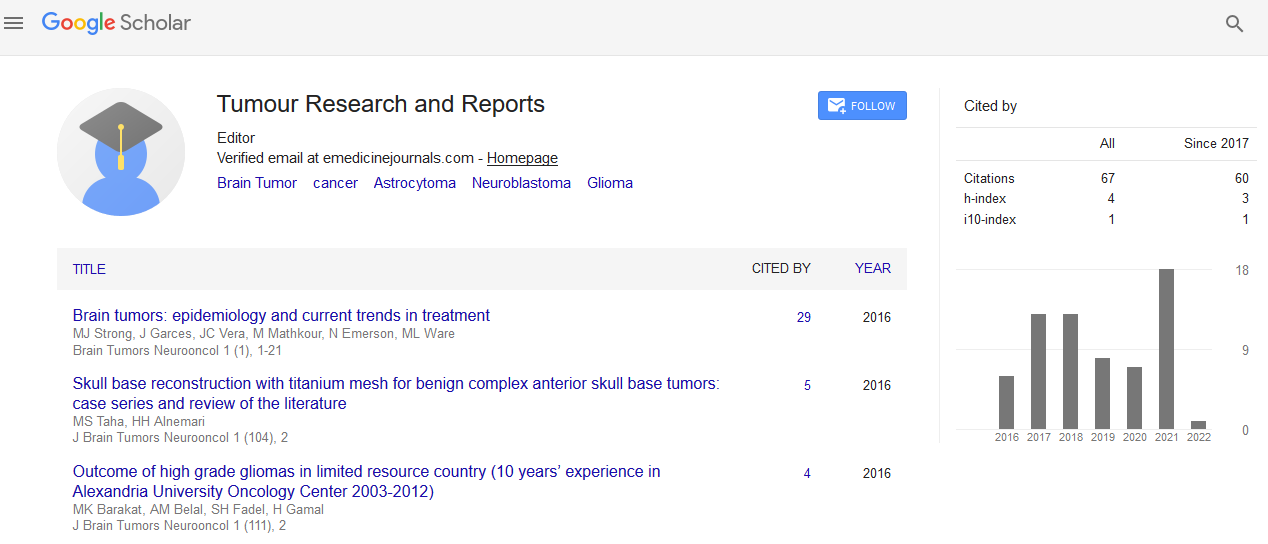Indexed In
- RefSeek
- Hamdard University
- EBSCO A-Z
- Google Scholar
Useful Links
Share This Page
Journal Flyer

Open Access Journals
- Agri and Aquaculture
- Biochemistry
- Bioinformatics & Systems Biology
- Business & Management
- Chemistry
- Clinical Sciences
- Engineering
- Food & Nutrition
- General Science
- Genetics & Molecular Biology
- Immunology & Microbiology
- Medical Sciences
- Neuroscience & Psychology
- Nursing & Health Care
- Pharmaceutical Sciences
Abstract
Brain Tumors: Epidemiology and Current Trends in Treatment
Michael J Strong, Juanita Garces, Juan Carlos Vera, Mansour Mathkour, Noah Emerson and Marcus L Ware
Background: Brain tumors represent a group of neoplasms arising from brain tissue, each with their own unique biology, prognosis, and treatment. Included in this group are neoplasms not arising from brain parenchyma, which encompass meningiomas, lymphomas, and metastatic disease from other primary sources (often referred to as secondary brain tumors). Despite the diverse group of neoplasms represented, most intracranial tumors follow similar clinical presentations and diagnostic workups.
Methods: This review focuses on primary and secondary brain tumor epidemiology, imaging, and treatment modalities. In addition, we will highlight molecular genetic advances in the field that will help shape future treatment approaches.
Results: Although tumors affecting the Central Nervous System (CNS) are relatively uncommon, they are often very difficult to treat and cause disproportionate morbidity and mortality. Many of these neoplasms are universally fatal and our ability to treat both benign and malignant tumors is still in its infancy. Our lack of effective treatment leaves many of our patients with few options.
Conclusions: The combination of poor prognosis and lack of therapeutic options make further innovation and investigation a priority to improve clinical outcomes for patients suffering from CNS malignancies.

